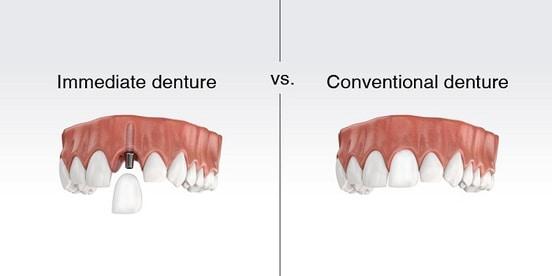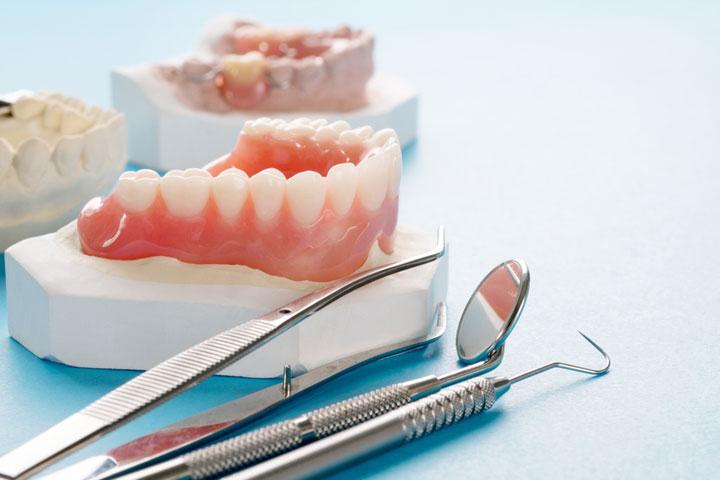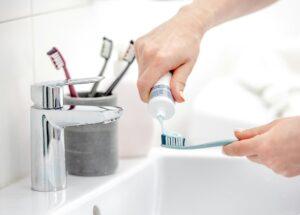Ate you looking for dental appliances that can replace missing teeth and assist you in regaining your confidence in your appearance. Substituting missing teeth will improve both your looks and overall health if you have lost all of your tooth structure, either due to gum disease, dental decay, or injury. Dentures come in handy to eat and speak more clearly than they would be otherwise, which are two things that most people take for granted if they don’t have teeth.
Once you lose all of your teeth, your facial expressions may begin to sag, making you older. Dentures can assist in boosting the looks of your face and image by filling in the gaps. They can be designed to look as close as possible to your natural teeth so that your overall appearance is not significantly altered. Dentures can enhance the look of your smile.
Dentures are classified into the following categories:

Conventional
It may take many months for your cells to heal and for this full detachable denture to be made and positioned in your mouth after the residual teeth have been eliminated.
Immediate
When the residual teeth are extracted, this detachable denture is placed on the same day. During a preliminary meeting, your dentist will measure the length and create models of your jaw for future procedures. You will not be required to be without teeth; however, you may want your denture relined or recreated after your jaw has fully recovered.
Overdenture
Several of your teeth may be saved to preserve your lower jaw and provide stable support for your denture in some cases. An overdenture is a removable appliance fitted over a few natural teeth that your dentist has planned. Transplants, on the other hand, can perform the same function.
For the first few weeks after receiving new dentures, you may feel uncomfortable until you get used to them. Your dentures may notice loose as your cheek and mouth muscles become more adept at holding them in place. It is not strange for individuals to experience mild inconvenience or soreness after using the product. Your saliva flow may increase slightly. It is expected that these issues will disappear as your mouth becomes familiar with the dentures. Following the direction of a denture, it is customary to schedule follow-up appointments with the dentist so that the fit can be inspected and modified. If a problem persists, especially if irritation or soreness is present, you should seek treatment from your dentist.
Even if you have complete dentures, you must maintain good oral hygiene. Brush your teeth, mouth, and roof of your mouth with a soft-bristled brush every day before you put your dentures in to stimulate flow in your tissues and aid in the removal of plaque and tartar.
Dentures should be brushed daily, just like your natural teeth, to eliminate bits of food and plaque. Brushing your teeth can also help to keep your teeth from becoming stained.
- Before brushing your dentures, rinse them and remove any loose food or particles.
- Gently brush all of the surfaces of the dentures with a soft bristle toothpaste and a non-abrasive cleanser to avoid scratching them.
- If you have a plaque in your mouth, brush it out thoroughly by brushing your gums, cheeks, tongue, roof, and tongue with a soft-bristle toothbrush. As a result, there is less chance of oral annoyance and bad breath developing.
- Keep your dentures safely covered with water when you are not wearing them to prevent them from twisting.
- Denture wearers may often use adhesives to hold their dentures in place. Adhesives are available in various forms, including creams, powders, pads/wafers, strips, and liquids. If you decide to use one of these goods, read the guidance and follow it. Your dentist can suggest suitable cleansers and adhesives; look for products with the American Dental Association’s Seal of Acceptance on the packaging. The products that bear the ADA Seal have undergone extensive testing to ensure their safety and efficacy.
If dentures are no longer fitting properly or have become broken, you should consult your dentist immediately. In addition, make sure to schedule dental check-ups. The dentist will examine your mouth to determine whether or not your dentures are still fitting properly.







